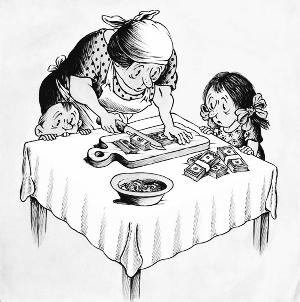日全食
2009-07-24

句子:7月22日,将出现21世纪最长时间的日全食。
误译:On July 22, there will be the longest sun full eclipse of the 21st century.
正译:On July 22, there will be the longest full sun eclipse of the 21st century.
解释:将“日全食”字对字地译为 sun full eclipse,不合乎英语习惯。名词前面有一个以上修饰词时,包括形容词和名词,谁排列在先,谁排列在后,是个复杂的问题。不容易找到普遍规律。在这里,sun eclipse(名词修饰名词)的关系更加密切,不可分开。译为 full sun eclipse,比较好。
“日食”可以译为 solar/sun eclipse或 eclipse of the sun。例如:1. 发生日食时,有些动物很恐惧。Some animals are frightened during an eclipse of the sun.
“日全食”的译法很多,包括 full solar/sun eclipse, full eclipse of the sun,或total solar/sun eclipse, total eclipse of the sun。此外,译为solar full/total eclipse 也可以,但是较少使用。例如:2. 日全食是日食的一种类型。月亮在太阳前面经过并完全遮住太阳,这是一种非常奇妙的景观。A total eclipse of the sun is one type of solar eclipses. When the moon passes in front of the sun and blocks it completely, this is an amazing sight.
“日偏食”可以译为 partial solar/sun eclipse或 partial eclipse of the sun。也有少数人译为solar partial eclipse。例如:3. 在其他城市,像北京和香港,将看到大约75%的日偏食。Other cities, like Beijing and Hong Kong, will see partial solar eclipses of about 75 percent.▲
(本栏目供稿:王逢鑫教授)
